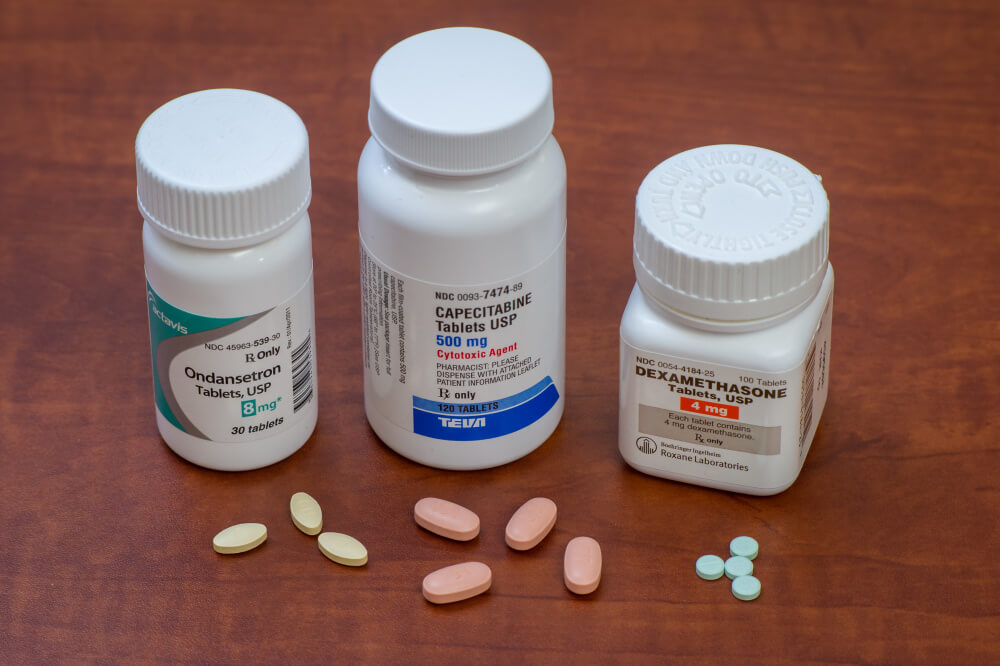Does Chemo Take a Tole on a Person Body the Side Effects Are to Great to Continue
What is chemotherapy?
Chemotherapy is a powerful group of medicines that are used to treat cancer throughout the body. Chemotherapy (chemo) work by a variety of different mechanisms, but their general effect is to slow or stop the growth of cancer cells, which divide and grow quickly. The most common ways chemo may be given include intravenous (IV), injection (shot) or by mouth like a pill. These methods circulate the medicines throughout the body.
Patients may receivea number of different types of chemotherapy, depending on a variety of factors such as the specific cancer, the stage of the cancer and the goal of treatment which may be to cure, control, or improve symptoms caused by the cancer.
How long is chemotherapy treatment?
How long a patient will need treatment varies. Different cancers are treated depending on the cancer type, stage, if the cancer is sensitive to hormones or has a gene or protein that can be targeted and other medical conditions a patient may have.

How long does chemo stay in the body and bloodstream?
The benefits of chemotherapy can be long-lasting. This is crucial in fighting cancer, but it raises the question of how long these drugs stay in the bloodstream.
These powerful drugs are broken down by the kidneys and liver and leave your body in urine, stool, vomit, vaginal fluids, and sweat. Some drugs leave your body quickly, others may take a few days, with each passing day, the amount of drug leaving your body after treatment is less. Most chemotherapy drugs are cleared from body waste in about two days. A few drugs may take as long as seven or more days to be cleared.
A variety of factors can influence how long it takes for the drugs to leave your body. The presence of other medicines in your system, your age (increasing age increases the time), and how well your liver and kidneys able to process the drugs.
These drugs kill cancer cells in your body, so your body waste may be dangerous to others around you. Special care should be taken to reduce exposure to small children and pregnant women. Caregivers should wear gloves when handling body waste. The person receiving the chemo could use of a separate bathroom if possible. If there is a spill, clean immediately.
Since chemotherapy effects all the cells in the body, it can have a wide range of side effects on your body's organs. Each drug is unique, but these are some common side effects:
- Fatigue
- Hair loss
- Easy bruising and bleeding (low platelet count)
- Increased risk of infection (low white blood cell count)
- Anemia (low red blood cell count)
- Nausea and vomiting (early or delayed)
- Appetite changes
- Constipation
- Diarrhea
- Mouth, tongue, and throat problems such as sores and pain with swallowing
- Nerve problems such as numbness, tingling, and pain in arms and feet
- Bone and/or muscle aches
- Skin and nail changes such as dry skin and color change
- Weight changes
- Chemo brain (aka chemo fog), thinking and memory problems caused by treatment
- Mood changes
- Changes in libido and sexual function
- Fertility problems
Your doctor can give you a range of how long any side effect is likely to last.
Does chemo come out in sweat?
Yes, chemotherapy drugs are removed through sweat, urine, stool and other body fluids. However, excessive exercise, extended visits to the sauna, or any other methods of generating extra sweat are not recommended by doctors when you are undergoing chemotherapy. There is a danger of dehydration when engaging in these activities, and it will not increase your body's natural ability to process and remove these drugs.
Are there any natural remedies that can be used to 'detox' from chemo?
Detoxing refers to the process of removing "toxins" from the body, either naturally or via diets or supplements,which can be unsafe and falsely advertised. A2015 review concluded that there was no compelling research to support the use of "detox" diets for weight management or eliminating toxins from the body, according to the National Center for Complementary and Integrative Health.
Doctors and scientists say that the body already has specific systems in place (gut, liver, kidneys, and skin, to name a few) to clear toxins and waste. Eating healthy foods (such as vegetables) and drinking a lot of water helps the body break down and remove them.
Always tell your cancer care team if you are on a special diet or you are taking vitamins, supplements or home remedies, as these products may cause more serious side effects.
Contact your doctor and/or licensed nutritionists, and dietitians to develop health-promoting strategies during and after treatment.
Source: https://blog.dana-farber.org/insight/2022/06/how-long-does-chemotherapy-stay-in-your-body/
Post a Comment for "Does Chemo Take a Tole on a Person Body the Side Effects Are to Great to Continue"